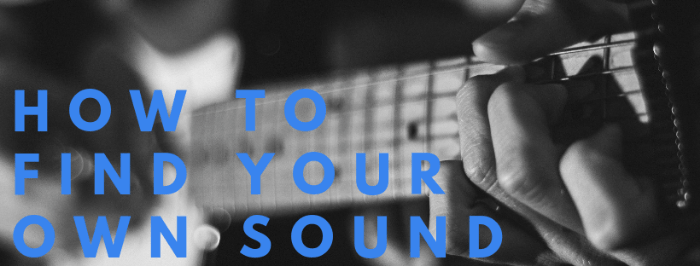
A long sought after goal of many (if not most) musicians is to be original and develop their own unique sound. The problem is many of us don’t know where to begin to achieve that goal. In reality, one of the best things you can do to develop your own sound seems counterproductive; copy your favorite artists. In this blog, we will look at a few different ways we can draw inspiration from and imitate those who have paved the way for us with the goal of becoming more original.
When I say to copy your favorite musicians, this isn’t so you can become a clone of them. The aim is to pick a few musicians you like and have found yourself saying, “I want to be able to play like that” about or even look to the band that inspired you to become a musician in the first place. Once you narrow it down to a few people, you want to analyze their playing and see what you like and don’t like from each player. You can then put together the things you like and add your own spin on them. This is what every great musician has done in the past and these will always be some of the fundamental building blocks of finding your own sound.
1. Know their gear.
One of the first things you can do once you’ve identified which musicians you would like to sound like is to find out what they’re playing. You can start with knowing what brand they play or endorse and then get into the model. Is that drummer playing DW or Tama? Is the guitarist playing Fender or Gibson? If they have a pedalboard, what pedals are they using?
After knowing which brand and model instruments they use, know the specs of that model. Are the drum shells made out of birch or maple? Is he/she using clear or coated heads? How about the cymbals; dark and dry or bright and cutting? Does their guitar use single coil pickups or humbuckers? And are they using light or heavy strings?
Let’s even take it a step further. What sticks is the drummer using; or what guitar picks? If you’re a bassist, does your favorite bassist use a pick or their fingers? These are all details that can be overlooked, especially by newer musicians. You might be tempted to buy the gear that looks cool to you but looks always come second to functionality. If your favorite guitarist strictly uses Fender Stratocasters, you might wanna forget about that Gretsch White Falcon for a bit (nothing against that guitar; it’s amazing!) and grab a Strat, at least for the time being.

2. Know their tone.
Finding your own sound isn’t just about your gear but how you use it. How do your favorite musicians EQ and tune their instruments? Does the drummer crank his/her snare or is it low and beefy? Maybe that guitarist almost always uses their neck pickup when they play solos. Perhaps your favorite keyboardist generally uses a very bright pad instead of the usual dark and warm pad.
This can take some trial and error, especially if you can’t find videos of the artist performing or if they’re not super open about how they get their sound. You might be surprised by how many artists have uploaded videos on YouTube about their rig and even some studio tricks, though so give that a shot!
3. Know their style.
Finding your own sound has a lot to do with your touch and how you play your instrument. This is probably the hardest to imitate because this is where actual playing ability and skill comes into place so give it some time and practice, practice, practice. Start looking for repetitive patterns your favorite musician uses a lot. Maybe the guitarist always uses the same 3-note descending lick in their solos. Does your favorite drummer frequently displace the backbeat for rhythmic tension? Or maybe that keyboardist almost never plays chords with the root on the bottom and leaves it up to the bassist to decide what inversion to use.
4. Know their inspirations.
There is nothing new under the Sun and same is true of music. It’s highly unlikely that any “new” tricks or secrets haven’t first been done by someone else in the past. Your favorite artists likely went through this same process of studying their favorite musicians so watch/read some interviews to find out who inspired your heroes and go straight to the source material. You will start to hear what ideas they borrowed from others and the spin they put on them.
So what?
All of these things are just ideas on how to achieve your own sound quicker. Most people subconciously do these things anyway but if you make the concious decision to study the greats and implement their ideas into your own playing, you will find your sound much sooner than if you just leave it up to chance. So get to studying, copy what you can, and then throw some of your own flavor into the mix and see what happens!
